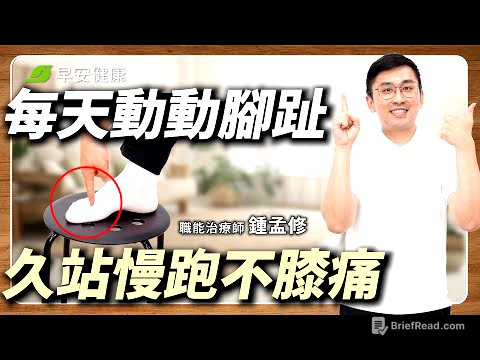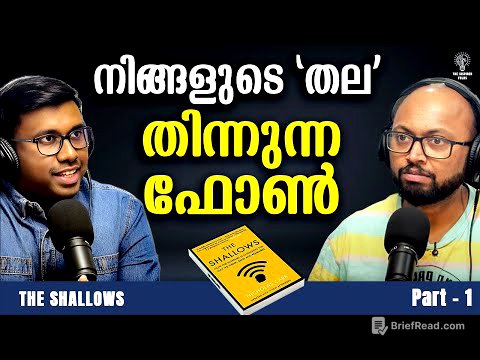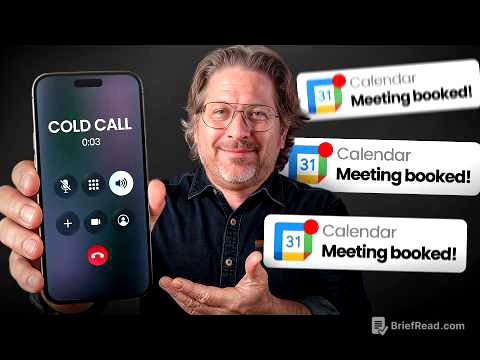TLDR;
This video presents Act One of David Henry Hwang's play "Yellow Face," adapted for YouTube. The play explores themes of race, identity, and political correctness through the lens of the controversy surrounding the casting of Jonathan Pryce in "Miss Saigon" and the subsequent events in the playwright's life. It touches on the complexities of Asian-American representation in media, the pressures of political activism, and the personal struggles of navigating identity in a racially charged environment.
- The play is a direct adaptation of David Henry Hwang's acclaimed work.
- It uses a hybrid approach, blending theater, film, and YouTube elements.
- The story revolves around the casting controversies and identity issues in the Asian-American community.
Intro [0:00]
Chester See and David Henry Hwang introduce the YouTube adaptation of Hwang's play "Yellow Face." Hwang expresses his excitement about the adaptation by Justin Lin and the innovative approach taken by director Jeff Liu, which combines elements of theater, film, and YouTube. Chester See highlights the novelty of presenting such a unique hybrid to the audience.
Email from Marcus G Dolman [1:57]
The play begins with an email from Marcus G. Dolman to David Henry Hwang, describing Dolman's experience in a remote Chinese village. He recounts his journey to find the "soul of China" and his encounter with the Dong tribe, known for their traditional music called "daga." The Dong people believe that "rice feeds the body, song feeds the heart." This email sets the stage for the story and introduces the character of Marcus.
Miss Saigon Controversy [3:29]
The scene shifts to the controversy surrounding the casting of Jonathan Pryce, a white actor, as an Asian character in the Broadway production of "Miss Saigon." Playwright Frank Chin criticizes David Henry Hwang, labeling him a "white racist." BD Wong informs David about the casting issue, expressing outrage over the producers' claim that they couldn't find a qualified Asian actor for the role. David agrees to write a letter to Actors Equity to protest the casting decision.
Actors Equity and Public Reaction [5:41]
David writes a letter to Actors Equity, denouncing the "yellow face" casting of Jonathan Pryce. Actors Equity supports David's stance and arranges a meeting with the "Miss Saigon" team. During the meeting, the producer accuses David of stirring up trouble and questions his motives, suggesting that BD Wong is simply seeking a job. The situation escalates, leading to Actors Equity barring a white actor from playing an Asian role, which results in the cancellation of the Broadway production of "Miss Saigon."
Aftermath and Personal Conflict [7:48]
Following the cancellation of "Miss Saigon," Actors Equity faces mounting pressure to reverse its decision. Protests and demonstrations occur, and media figures criticize the union's stance. David receives a call from Carla, urging him to attend a rally in support of Actors Equity, but he declines, feeling conflicted about the situation. Actors Equity eventually reverses its decision and welcomes Jonathan Pryce to the show.
Father's Perspective [10:39]
David's father calls, praising him for keeping his name in the papers during the "Miss Saigon" controversy. His father expresses admiration for the musical's storyline, where a Vietnamese woman sacrifices herself for her child to find a better life in America, relating it to his own immigrant experience. He asks David for tickets to the show and shares his belief that the play resonates because it reflects the desire of people to come to America for a better life.
Face Value and Casting [15:34]
David begins working on a new play called "Face Value," inspired by the "Miss Saigon" controversy. The play is described as a comedy of mistaken racial identity. During the casting process, the team struggles to find a suitable Asian male lead. Casting director Myles Newman is tasked with finding a "fresh young Asian face."
Marcus G Dolman's Audition [17:45]
Myles suggests Marcus G. Dolman for the role. David is initially skeptical due to Marcus's non-Asian sounding name. During the audition, David questions Marcus about his background, trying to ascertain his ethnicity. Marcus claims to have spent time in the International District and shares stories he heard from the Nisei (second-generation Japanese Americans). He performs a monologue, impressing David with his acting ability.
Debate Over Marcus's Ethnicity [22:39]
After Marcus's audition, David and Myles debate whether Marcus "looks Asian enough." David expresses discomfort with the question, while Myles insists on casting someone who is clearly Asian. They discuss Marcus's Eurasian background and the potential issues that could arise if he doesn't appear Asian to other white people. David ultimately decides to cast Marcus, stating that he can "tell an Asian when I see one."
Face Value Rehearsals and Doubts [23:47]
Rehearsals begin for "Face Value" with Marcus in the lead role. Jane Krakowski compliments Marcus on his talent. Marcus confesses to Jane that he feels like a "fake." Jane reassures him, suggesting that many successful people feel like they don't belong. She advises him to imagine he's playing a part to overcome his nervousness.
Boston Premiere and Bad Reviews [25:53]
The play premieres in Boston, but receives negative reviews. Critics find the play confusing and unfunny. David begins rewriting the play in response to the criticism.
Discovering Marcus's True Identity [27:20]
David calls Rodney, an actor who had worked with Marcus in "Go for Broke," to inquire about Marcus's ethnicity. Rodney reveals that Marcus is "100% white." David is shocked and struggles to reconcile this information with his belief that Marcus was Asian. Rodney mocks David for casting a white actor as Asian after protesting the "Miss Saigon" casting.
Legal and Ethical Dilemmas [30:09]
David consults with his lawyer, Stewart, about firing Marcus. Stewart warns him that firing Marcus for being white would be a violation of anti-discrimination laws. He advises David to avoid letting Marcus know that he is aware of his true ethnicity, as this would further complicate the situation.
Asian American Resource Center Event [31:23]
David and Marcus attend an event at the Asian American Resource Center. David tries to control the narrative and prevent Marcus from revealing his true identity. However, members of the audience question Marcus about his racial heritage. Marcus claims to have Siberian Jewish ancestry, which David attempts to pass off as Asian. The audience embraces Marcus, praising him as a role model.
Show Closes and Final Encounters [36:13]
After the event, David receives a call from the producers, indicating that Marcus is not working out. Marcus leaves messages for David, sensing that he is about to be fired. He eventually leaves for San Francisco, expressing gratitude for the opportunity. "Face Value" closes before its official opening, resulting in a significant financial loss.
Aftermath and New Beginnings [37:53]
David, possibly drunk, calls Margaret from the Asian American Legal Defense and Education Fund, questioning whether he is still considered an Asian American role model. His father calls, offering him a position on the board of his bank, which is expanding into China. David accepts the offer, seeing it as a new opportunity. The act concludes with David's father attending a performance of "The King and I" and mistaking the actor for BD Wong, highlighting the ongoing confusion and misidentification of Asian actors.









